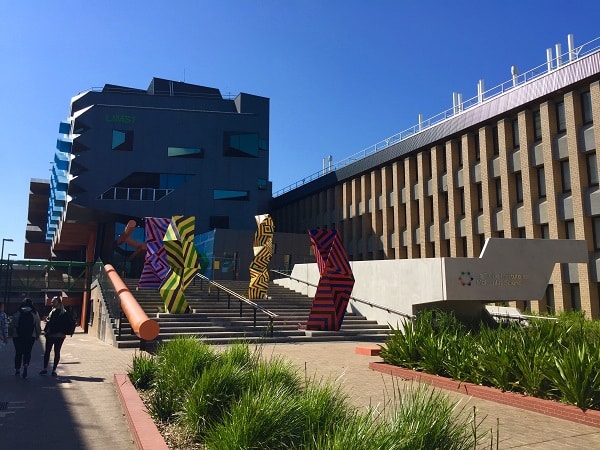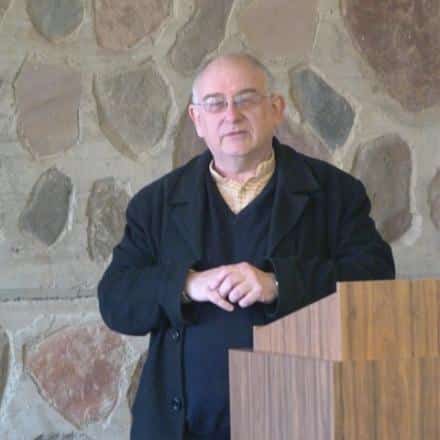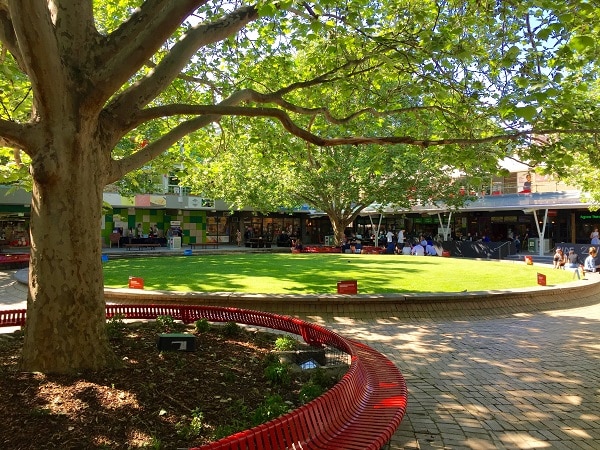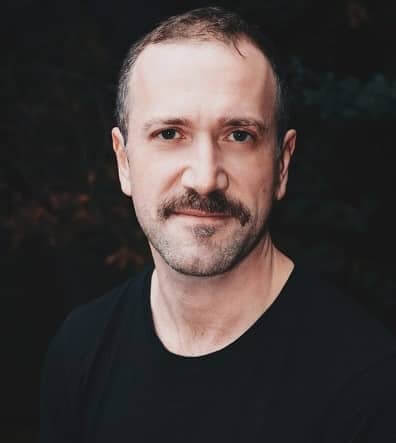A video message prepared by Dr Ian Woolford of La Trobe University, to save Hindi studies from being terminated due to COVID-caused financial hardships, is currently going viral in Australia’s Indian community.
AT A GLANCE:
- La Trobe University proposes to discontinue its Hindi studies program due to financial restraints caused by the COVID-19 pandemic
- Dr Ian Woolford teaches Hindi at La Trobe and believes the Hindi program is vital to building Australia’s multiculturalism and enhancing the connection between India and Oz
- He plans to save the course by spreading awareness in the community. A petition that has garnered 1,100+ signatures backing up the course has been making rounds to voice the community’s support.
Confronted with a decline in revenue and lack of students, the Victorian institution has deemed several of its Humanities courses to be unprofitable and is planning to disestablish its Hindi course, alongside other language programs.
Dr Woolford, the face of Hindi at La Trobe, says in the video, “I feel proud, honoured in fact, to teach Hindi at La Trobe. But there is a proposal now to end our Hindi program. Yeh bahut hi dukhad khabar hai.”
Talking to Indian Link, Dr Woolford explained the importance of Hindi in Australia for bilateral trade between the two nations, security, entertainment and integration of culture.
“Hindi is a global language, and it has become a language of Australia, one of its fastest growing languages,” Dr Woolford observed.
The 2016 Australian census showed that approximately 160,000 of the country’s population are Hindi speakers, a figure that has continued to grow.
“Hindi is critical not just for India-Australia relations, but also in Australia’s own national interest,” said Dr Woolford. “Take a walk in Fed Square and you won’t be able to go a minute without hearing an Indian language spoken. In fact, saving Hindi is but a longer-term project to help bring in multiple languages.”

The program at La Trobe is one of only two Hindi programs in Australia, following the one offered by the Australian National University (ANU). This defining quality allows the university to maintain a unique and strong connection with the Indian community and its culture.
“We understand that we are in a completely unprecedented situation across the nation,” he noted. “The School of Humanities and Social Sciences is looking at the complete elimination of Hindi, Indonesian and Greek. A loss of any of these would be a terrible loss for the prospects of multicultural studies in Australia.”
Additionally, he argued, this point in the pandemic is not the right time to be cutting back on languages. “With COVID, we hide in our homes, put masks on our faces – these are all barriers for communication. What we should be doing instead, is reaching out to communicate more.”
He lamented, “COVID has been a xenophobe’s dream, forcing unis to make terrible decisions. Cutting social sciences only serves to cut ways in which we understand other people’s perspectives.”
What you can do to help
Currently, Dr Woolford is writing a proposal to the university to consider how the program could be saved.
“I have until Wed 25 Nov to submit it. This is my life’s work; I’m doing everything I can think of. For those following this story, know that you can have a say – submit a response. Express your thoughts to the university leadership. People in charge will look carefully at it and consider. I do think this is the time to petition – not just for Hindi but for all languages.”

ANU’s Peter Friedlander, Senior Lecturer in Hindi, and formerly of La Trobe, believes Ian is doing all the right things to save Hindi.
He should know, since he has faced the very same situation.
“When this happened at my own university in the past, we reached out to the community to show how Hindi is important to Australia through linkages with India and the community settled here,” he told Indian Link. “I’ve said on many occasions that the responsibility lies with Australian universities to take part in the relationship between India and Australia. La Trobe, a significant provider of Hindi, has a wonderful tradition of teaching it. As the only other university to offer Hindi programs, it will be good for us at ANU to continue to have another university to work within the service of Hindi.”
Interestingly, the struggle to save Hindi at La Trobe comes in the wake of a generous donation received by another university for its Indian studies program. The University of Melbourne’s Australia India Institute has received a gift of $400,000 from a community-based charity headed by Mr T. Janardhana Rao OAM and his family.
Meanwhile, Ian’s message to the community seems to be making a mark. Many people have signed the petition, and many emailing the university.
Sydney’s Gaurav Surati for instance, said in his note to the university and to local members of Parliament, “I am disheartened to see that La Trobe is considering discontinuing their Hindi program. I understand that the pandemic has impacted the world in multiple ways – and has definitely made a dent financially. However, we know that this pandemic will be short-lived. Discontinuation of Hindi will not only impact those wanting to learn Hindi, but also relations between India and Australia.”
La Trobe’s Indian links
La Trobe has been one of the few universities in Australia to forge social and cultural links with India, besides academic and research relationships with a number of Indian institutions.

These links come with its close ties to the Indian Film Festival of Melbourne, which brought major Bollywood stars to campus, among them Amitabh Bachchan in 2014 and Shah Rukh Khan only last year. Both stars have lent their names to large research scholarships to Indian-origin students at the university. In 2013 the university’s cinema was renamed for a year to Yash Chopra Cinema, to honour the late film-maker, whose 2005 film Salaam Namaste was filmed here on campus.
Of course, way before this, La Trobe had had another high-profile visitor, when Indira Gandhi, the only sitting Prime Minister of India to ever visit a university campus here, dropped by in 1968.
It will be a shame to see these closely created Indian links lose a significant component if Hindi were to go.
Email VC@latrobe.edu.au with your response.
READ ALSO: The SRK seduction at IFFM 2019





